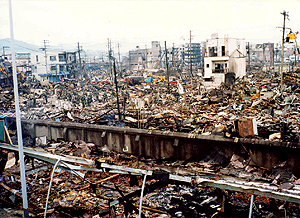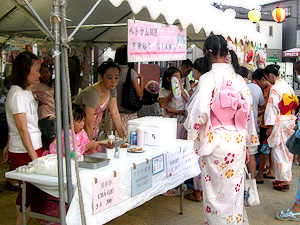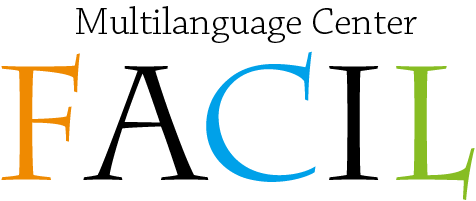Looking beyond bilateral communication: Activities in a disaster-affected region.
 So, why is a society that respects the two channels of communication a vibrant society? We hope to answer this question by sharing our experiences with you.
So, why is a society that respects the two channels of communication a vibrant society? We hope to answer this question by sharing our experiences with you.
If we stop to think about just how difficult it was for those who could understand Japanese to get a hold of information in the aftermath of the great Hanshin-Awaji earthquake, then just imagine how much more difficult it would have been for those ethnic minority residents who couldn’t understand Japanese.
In Nagata ward of Kobe, there lives a large community of Vietnamese people who arrived in Japan as refugees during the 1980s. In the chaos that emerged in the aftermath of the 1995 earthquake, many of these people couldn’t understand difficult Japanese words like “emergency shelter”. However, the earthquake brought many victims within the Nagata community together and they united to assist those with injuries to seek medical treatment and raise the spirits of victims by holding barbeques in the emergency shelters.
During the earthquake, life or death was often determined by whether people were familiar with their neighbors. For example, many people within the community died because the roofs of their house or garages had collapsed on them. However, rather than checking to see if their neighbors were alright, people just didn’t give a second thought to check on their neighbors. Even though people were living side by side, they were essentially living in isolation. This was particularly so for foreign residents and the elderly.
If however, your neighbor was Chinese and you made efforts to try and talk with them regularly on a friendly basis, then you would have built a relationship where both of you would check up on and help each other.
Therefore, information is not just about conveying facts, it is about communication. Communication is a bilateral relationship where new information and ideas are exchanged between two parties.
For the majority of Japanese people, there is a perception that the Japanese way of living is the most commonsensical way of doing things. However, we at FACIL believe that people from different cultural backgrounds have a lot of positive things to contribute to our society.
We feel that if communication between residents of ethnic minority backgrounds and local Japanese people were improved this would encourage Japanese who have only ever know about their home country to be able to understand society from the perspectives of immigrant residents. By improving such communication, we hope that people will be able to notice things about their society that they hadn’t noticed before. As a result, they might be able to create a better environment for themselves and have a new found pride in Japan.
What we hope to realize through our multilanguage activities.
 There are many residents of foreign backgrounds living in the community where our activities are based.
There are many residents of foreign backgrounds living in the community where our activities are based.
Before the earthquake, if you were to say ‘local summer festival’, this would have meant traditional Japanese dancing and food stalls selling traditional Japanese food like takoyaki and fried soba noodles. However, because many within the community, local and foreign residents alike, shared the same experiences of living side-by-side in emergency shelters during the earthquake, many now feel a strong sense of community. This lead to the raising of voices within the community to include food stalls that sell Vietnamese spring rolls, Nepalese curry, Korean pancakes and Peruvian barbeque chicken during the local summer festivals. Now, it is seen by the general public as being only natural to stand and wait in line for food stalls selling international cuisine.
At the end of our efforts at improving communication between each individual regardless of their background awaits a community which is vibrant and diverse. The road towards this kind of community is not easy and there may be various bumps along the way. However, 16 years have passed since the earthquake and our resolve to achieve this kind of lively community has only grown stronger. This is what Multilanguage Center FACIL aims to achieve through our various activities.
